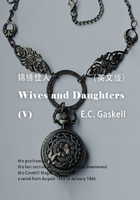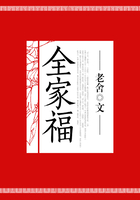When a herring or mackerel boat has discharged on the beach, at Hastings or Dover, last night's take of fish, the boatmen, in order to dispose of their cargo, commonly resort to a process called Dutch auction. The fish are divided into lots, each of which is set up at a higher price than the salesman expects to get for it, and he then gradually lowers his terms, until he comes to a price which some bystander is willing to pay rather than not have the lot, and to which he accordingly agrees. Suppose on one occasion the lot to have been a hundredweight, and the price agreed to twenty shillings. If, on the same occasion, instead of the Dutch form of auction, the ordinary English mode had been adopted, the result might have been different. The operation would then have commenced by some bystander making a bid, which others might have successively exceeded, until a price was arrived at beyond which no one but the actual bidder could afford or was disposed to go. That sum would not necessarily be twenty shillings; very possibly it might be only eighteen shillings. The person who was prepared to pay the former price might very possibly be the only person present prepared to pay even so much as the latter price; and if so, he might get by English auction for eighteen shillings the fish for which at Dutch auction he would have paid twenty shillings. In the same market, with the same quantity of fish for sale, and with customers in number and every other respect the same, the same lot of fish might fetch two very different prices.
(Thornton, pp. 47-8.)
This instance, though seemingly a trivial, is really a representative one and a hundred cases could not show, better than this does, what Mr. Thornton has and what he has not made out. He has proved that the law of the equalisation of supply and demand is not the whole theory of the particular case. He has not proved that the law is not strictly conformed to in that case. In order to show that the equilisation of supply and demand is not the law of price, what he has really shown is that the law is, in this particular case, consistent with two different prices, and is equally and completely fulfilled by either of them. The demand and supply are equal at twenty shillings, and equal also at eighteen shillings. The conclusion ought to be, not that the law is false, for Mr. Thornton does not deny that in the case in question it is fulfilled; but only, that it is not the entire law of the phenomenon. The phenomenon cannot help obeying it, but there is some amount of indeterminateness in its operation--a certain limited extent of variation is possible within the bounds of the law; and as there must be a sufficient reason for every variation in an effect, there must be a supplementary law, which determines the effect, between the limits within which the principal law leaves it free. Whoever can teach us this supplementary law, makes a valuable addition to the scientific theory of the subject; and we shall see presently that in substance, if not strictly in form, Mr. Thornton does teach it. Even if he did not, he would have shown the received theory to be incomplete; but he would not have, nor has he now, shown it to be in the smallest degree incorrect.
What is more; when we look into the conditions required to make the common theory inadequate, we find that, in the case at least which we have now examined, the incompleteness it stands convicted of amounts to an exceedingly small matter. To establish it, Mr. Thornton had to assume that the customer who was prepared to pay twenty shillings for a hundredweight of fish, was the only person present who was willing to pay even so much as eighteen shillings. In other words, he supposed the case to be an exception to the rule, that demand increases with cheapness: and since this rule, though general, is not absolutely universal, he is scientifically right. If there is a part of the scale through which the price may vary without increasing or diminishing the demand, the whole of that portion of the scale may fulfil the condition of equality between supply and demand. But how many such cases really exist? Among a few chafferers on the beach of a small fishing port, such a case, though even there improbable, is not totally out of the question. But where buyers are counted by thousands, or hundreds, or even scores; in any considerable market--and, far more, in the general market of the world--it is the next thing to impossible that more of the commodity should not be asked for at every reduction of price. The case of price, therefore, which the law of the equalisation does not reach, is one which may be conceived, but which, in practice, is hardly ever realised.
The next example which Mr. Thornton produces of the failure of supply and demand as the law of price, is the following:-- Suppose two persons at different times, or in different places, to have each a horse to sell, valued by the owner at £50; and that in the one case there are two, and in the other three persons, of whom every one is ready to pay o650 for the horse, though no one of them can afford to pay more. In both cases supply is the same, viz., one horse at £50; but demand is different, being in one case two, and in the other three, horses at £50. Yet the price at which the horses will be sold will be the same in both cases, viz., £50. (p. 49.)
The law does fail in this case, as it failed in the former, but for a different reason; not, as in the former case, because several prices fulfil the condition equally well, but because no price fulfils it. At £50 there is a demand for twice or three times the supply; at £50.
0s. 0¼d. there is no demand at all. When the scale of the demand for a commodity is broken by so extraordinary a jump, the law fails of its application; not, I venture to say, from any fault in the law, but because the conditions on which its applicability depends do not exist.















